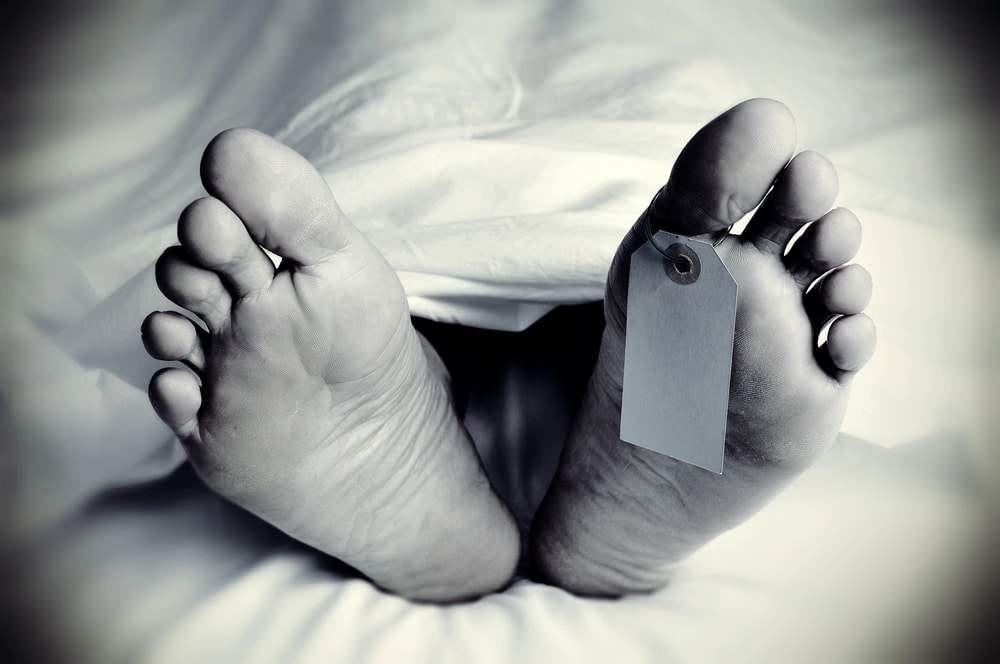It’s estimated that one in every seven people in the United States will struggle with addiction at some point in life. High rates of drug abuse throughout the country lead to tens of thousands of overdoses every year. More specifically, drug overdose deaths in New Jersey made a devastating impact in the lives of many.
The good news is that more people are seeking treatment for drug abuse in New Jersey. In future years, education and access to treatment will hopefully prevent many overdoses and save more people.

Overdose Deaths in New Jersey
Since the opioid addiction and overdose epidemic hit the United States in the late 1990s, more overdoses have led to widespread deaths all over the country.
In 2017, there were 70,200 drug-involved overdose deaths in the U.S., which is 21.7 people out of every 100,000 residents in the country. Of those, 47,600 deaths involved opioid drugs, which increasingly are heroin and fentanyl, as more people move away from abusing prescription painkillers. Fentanyl and fentanyl analogs, like carfentanil, caused 28,400 overdose deaths in the U.S. in 2017.
New Jersey’s overdose death rate is higher than the national average. The state experienced a 29.3 percent rise in overdose deaths from 2016 to 2017.
Like the rest of the nation, New Jersey’s residents struggle with opioid abuse and addiction, and most of the overdose deaths in the state involve an opioid. In 2017, New Jersey’s medical providers wrote 44.2 opioid prescriptions for every 100 residents. Although the state has a higher overdose rate than the rest of the U.S., New Jersey providers prescribe narcotic medications at a rate lower than the national average, which is 58.7 prescriptions for every 100 people.
What New Jersey Counties Were Impacted By Drug Overdose Deaths?
In the state of New Jersey, drug overdoses are the leading cause of accidental death. Between 2004 and 2009, about 6,000 people died from drug overdoses. In 2009 alone, about 700 people died from overdoses. Opioids were involved in 75 percent of these overdose deaths.
Five counties in New Jersey had the highest rates of overdose death.
- Camden, with 97 deaths
- Essex, with 81 deaths
- Middlesex, with 73 deaths
- Monmouth, with 69 deaths
- Ocean, with 63 deaths
Other counties in New Jersey showed lower rates of overdose deaths for 2009.
- Atlantic: 48 deaths
- Bergen: 32 deaths
- Burlington: 35 deaths
- Cape May: 15 deaths
- Cumberland: 13 deaths
- Gloucester: 36 deaths
- Hudson: 41 deaths
- Hunterdon: 3 deaths
- Mercer: 22 deaths
- Morris: 28 deaths
- Passaic: 28 deaths
- Salem: 4 deaths
- Somerset: 12 deaths
- Sussex: 8 deaths
- Union: 34 deaths
- Warren: 10 deaths
What Drugs Caused the Most Overdose Deaths In New Jersey?
Drug-related deaths soared from 2015 to 2017, largely due to wider abuse of heroin and fentanyl in the state. However, there were numerous substances involved in overdose deaths in New Jersey in 2017.
These were the top drugs mentioned in the decedent reports:
- Cocaine, with 890 mentions
- Fentanyl, with 1,429 mentions
- Methadone, with 120 mentions
- Morphine, with 36 mentions
- Oxycodone, with 299 mentions
- Heroin, with 1,613 mentions
The New Jersey Office of the State Medical Examiner (OSME) found that, effective 2014, any cases positive for morphine were heroin-related, as heroin metabolizes into morphine in the body. While there are several mentions, OSME reports that several decedents had multiple substances in their system.
U-47700 is a dangerous synthetic opioid, and in 2016, OSME reported that it was involved in six drug-related deaths. While this specific opioid has not devastated the country the same way that illicit fentanyl and its analogs have, it is still very dangerous and more likely to cause an overdose than lead to a heroin-like high.
Who Was Most Impacted By Drug Overdose Deaths In New Jersey?
Generally, men struggle with addiction to drugs or alcohol more than women. In New Jersey, 543 men overdosed on substances and died in 2009, while 208 women died from drug overdose.
Better Access to Treatment Can Help New Jersey Residents
Although there are more overdose deaths in New Jersey than the national average, due to high-potency, dangerous opioids and mixing harmful substances, there are more people seeking treatment for drugs in the state.
The NJ Substance Abuse Monitoring System (NJSAMS) found that, between 2014 and 2017, treatment admissions for all substances including alcohol, opioids, and cocaine went up. While more people are struggling with drug abuse and overdose, more people know they need help to overcome these addictions.
- Surgeon general: 1 in 7 in USA will face substance addiction – USA Today
- Department of Human Services | Statistical Reports
- Drug Overdose Deaths: Facts and Figures – NIDA
- Momentum Grows for New Jersey to Implement Comprehensive Plan to Prevent Drug Overdose Deaths
- NJ Drug Related Deaths – Office of the Chief State Medical Examiner
- Substance Use in Women and Men – NIDA
- NJ Population Health | Substance Use Treatment
Our admissions team is available 24/7 to listen to your story and help you get started with the next steps.








